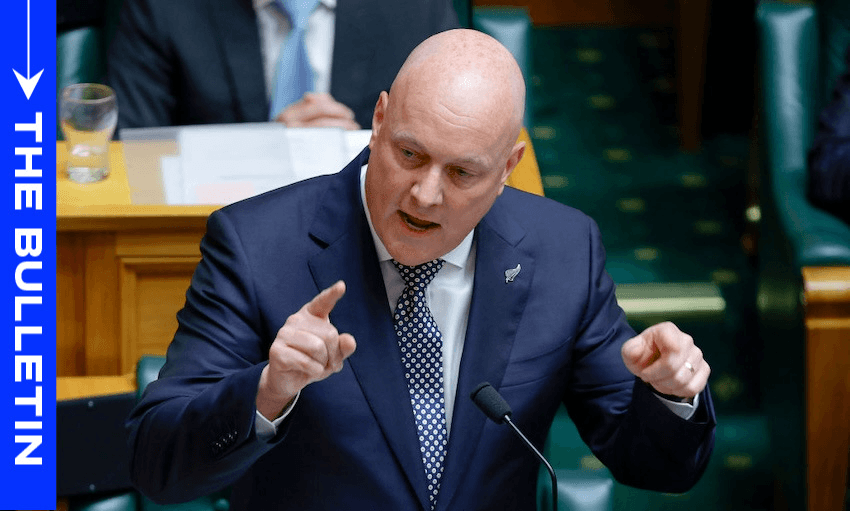The PM insists teens can find work by simply ‘getting off the couch’ – but industry leaders and youth advocates say he’s out of touch, writes Catherine McGregor in today’s extract from The Bulletin.
To receive The Bulletin in full each weekday, sign up here.
A ‘tough-love’ policy for school leavers
The government’s announcement on Sunday that 18- and 19-year-olds with parents earning over $65,000 will lose access to Jobseeker Support has sparked outrage from the opposition and disbelief from many young people. Prime minister Christopher Luxon defended the policy as “unapologetically” aimed at encouraging young people into work, training or education, insisting there are plenty of jobs available – if only school leavers would “get off the couch, stop playing PlayStation and go find a job”, as he told Rotorua business leaders on Friday.
As Henry Cooke reports in The Post, Luxon said those unable to find work locally should “go where the jobs are”. Labour leader Chris Hipkins shot back that “people are taking his advice – they’re moving out of the country”. Around 30,000 New Zealanders left for Australia last year, according to Emma Gleason’s number-crunching in The Spinoff. Hipkins also warned that the changes could perversely incentivise low-income families to reduce their hours to stay below the threshold, calling it “bad policy” that punishes hard-working parents rather than creating new opportunities.
Growers dispute claims of a labour shortage
Luxon’s portrayal of a horticulture sector “crying out” for workers quickly came under fire from the industry itself. Yummy Fruit Company chief executive Paul Paynter, whose orchards employ hundreds of seasonal staff in Hawke’s Bay, told RNZ’s Anneke Smith that Luxon’s claim simply wasn’t true, at least right now. Work in fruit-growing, he explained, “ebbs and flows” – there’s a brief peak during thinning and harvest seasons, but “they’re not permanent year-round jobs”. Even during the busy months, kiwifruit producer Michael Franks said, local labour is prioritised; his industry would not “cycle up for jobs” again until March.
Economist Brad Olsen agreed that horticulture offered only “a couple of months’ work a year”, hardly enough to keep young people off Jobseeker for long. The government’s framing, he said, ignored both the short-term nature of such jobs and the fact that employment among 15- to 19-year-olds has fallen by roughly 10,000 positions in the past year.
Competition fierce, opportunities scarce
While Luxon insists that anyone who really wants a job can find one, evidence from the labour market tells a different story. Stuff’s Bridie Witton reported that a front-of-house role at a Wellington Tank juice bar recently attracted 218 applications, while in The Spinoff, Gabi Lardies reported on a single admin job earlier this year which drew 1,200 applications in two days. Meanwhile data from Student Job Search shows a 63% increase in applications year-on-year, reflecting intense competition for casual and short-term roles. For many, Luxon’s suggestion to relocate for seasonal work rings hollow when rents in regional towns are rising and even basic retail and hospitality roles attract hundreds of applicants.
Disabled teens caught in the net
Further controversy erupted with RNZ’s Lillian Hanly report that the new restrictions will also apply to young people who have had to leave work because of illness or a disability. As of June, 2,685 18- and 19-year-olds were receiving Jobseeker support due to a health condition or disability. Social development minister Louise Upston said those affected were dealing with “temporary conditions” and would be expected to study, train, work, or rely on their parents for support. She said she anticipated parents would support “all their kids, whether they have a health condition or not”, while those with permanent disabilities should instead move to the Supported Living Payment.
Youth advocate Aaron Hendry of Kick Back said, taken as a whole, the new policy would push families into deeper poverty and increase youth homelessness. “Young people are being punished for an economic crisis that they did not create,” he said.
Subscribe to +Subscribe

